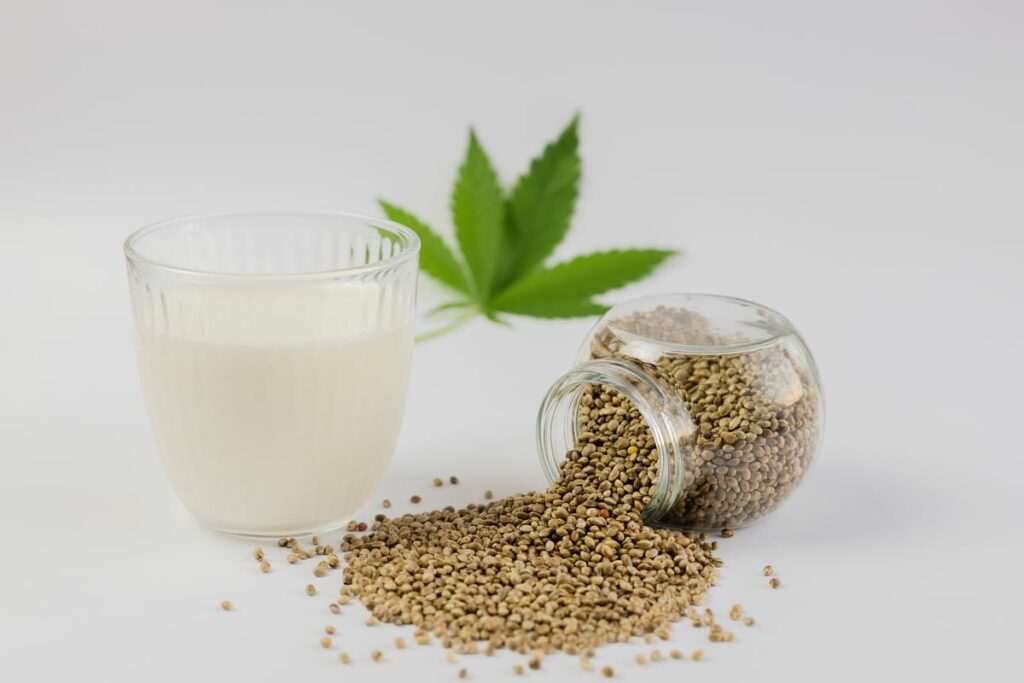When it comes to choosing plant-based milk, you have many options. There’s hemp milk, coconut milk, pea milk, and peanut milk, and all have various benefits, especially with the consumption of fewer calories.
Peanut milk
If you’ve ever thought about replacing your regular dairy products, you might want to try peanut milk. This plant-based alternative offers a thick, creamy texture without emulsifiers or stabilizers. Peanut milk also has more nuts and more protein than other plant milk. The product is not yet very popular, but it could be an excellent fit for chocolate milk fans.
One method for making peanut milk is wet grinding. This method yields a powder with thick viscosity that acts as a binder in recipes. It is a plant-based alternative, free from nuts, and a good source of calcium and vitamins D and A. Ripple pea milk, for example, contains 8 grams of heart-healthy protein. On the other hand, peanut milk tastes a lot like creamy peanuts, but it’s light enough to drink. It works well in coffee, smoothies, and baking recipes that call for a nutty flavor.

Hemp milk
Hemp milk is dairy-free plant milk, and it has a nuttier flavor than traditional cow’s milk. Despite its name, hemp milk does not contain any hormones. Many dairy products contain trace amounts of growth hormones, and many non-dairy alternatives include significant quantities of plant-based estrogen. Its hormone-free status makes it a welcome addition to the grocery cart for many consumers.
The market for hemp milk is estimated to be worth USD 217.6 million by 2027, with a 14.9% compound annual growth rate. In 2020, the market was valued at USD 217.6 million. Hemp milk products are increasingly available in the United States.

Coconut milk
It’s important to note that coconut milk is a liquid made from the flesh of the coconut, not the water. Coconut milk is a common ingredient in many Asian and Caribbean cuisines. However, there are some differences between coconut milk and cow’s milk. Coconut milk is generally thick, while coconut milk beverages are thinner and closer to cow’s milk. To avoid the dairy milk taste, you can also substitute coconut milk with soy or hemp milk.
As a non-dairy alternative, coconut milk is beneficial for people with lactose intolerance. Lactose is a sugar found in dairy products and mammalian milk. Because coconut milk is lactose-free, it is an excellent substitute for those who are lactose-intolerant or allergic to dairy. Also, because coconut is a non-dairy alternative, it’s safe to drink by anyone, including people with milk allergies or lactose intolerance.
Pea milk
Pea milk contains a healthy dose of iron and protein and is wholly allergen-friendly and compatible with a dairy-free diet. Pea milk is the perfect option for people with lactose intolerance, who often find it challenging to find alternative dairy foods and beverages. It is also an excellent choice for those who suffer from allergies, including peanuts and tree nuts.
As plant milk, pea milk is a safe alternative to cow’s dairy. It’s packed with calcium and omega fatty acids and has no cholesterol or rBGH. The taste is comparable to that of natural dairy milk. Pea milk is an excellent choice for people concerned about the calories or who want to reduce their sugar intake. Despite the mixed reviews of pea milk, it’s a good alternative for those seeking a plant-based milk alternative.














